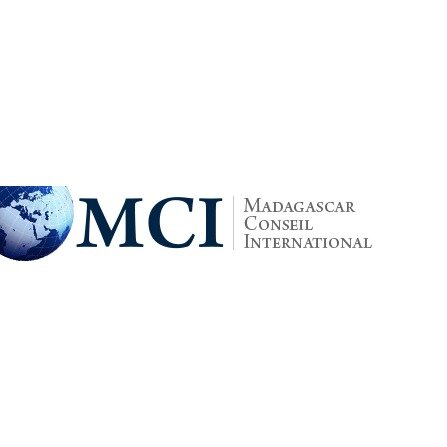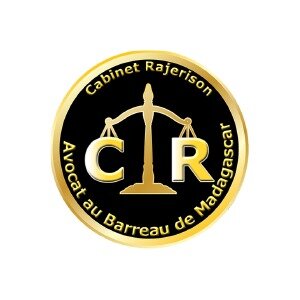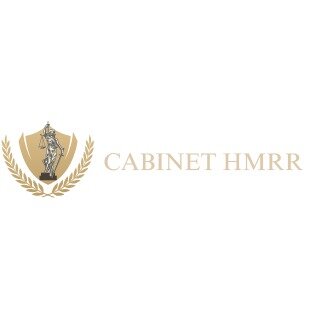Best International Trade Law Lawyers in Madagascar
Share your needs with us, get contacted by law firms.
Free. Takes 2 min.
Or refine your search by selecting a city:
List of the best lawyers in Madagascar
About International Trade Law in Madagascar
International Trade Law in Madagascar involves the regulations and guidelines governing the exchange of goods and services between Madagascar and other countries. This field of law encompasses a variety of areas such as trade agreements, tariffs, customs procedures, trade disputes, and international sales contracts. Madagascar is a member of several international and regional trade organizations, including the World Trade Organization (WTO) and the Common Market for Eastern and Southern Africa (COMESA), which influence its trade laws significantly.
Why You May Need a Lawyer
There are several circumstances in which individuals or businesses may require legal assistance in the area of International Trade Law in Madagascar:
- Navigating Trade Agreements: Understanding complex agreements and treaties that may affect your business operations.
- Compliance with Import/Export Regulations: Ensuring adherence to the local and international laws when importing or exporting goods.
- Resolving Trade Disputes: Assisting in negotiations or litigations in case of disputes with trading partners.
- Customs Procedures and Tariff Classifications: Guiding through the intricate customs processes and classifications to optimize tariffs.
- Risk Management and Contract Drafting: Drafting clear contracts to mitigate risks associated with international transactions.
Local Laws Overview
The legal framework for International Trade in Madagascar is characterized by several key laws and regulations:
- Customs Code: This outlines the rules and procedures for importation and exportation of goods, including tariffs and duties.
- Trade and Economic Cooperation Agreements: Madagascar has numerous bilateral and multilateral agreements guiding trade relations, including commitments under the WTO and COMESA.
- Investment Law: Regulates foreign investments and partnership agreements, aiming to promote and protect investments.
- Intellectual Property Laws: Protects patents, trademarks, and copyrights, crucial for trade involving proprietary products.
- Dispute Resolution Mechanisms: Provides frameworks for mediation, arbitration, and litigation in trade disputes.
Frequently Asked Questions
What are the common challenges in International Trade Law in Madagascar?
Challenges include navigating complex regulations, dealing with varying compliance standards, and resolving disputes across different legal frameworks.
Are there specific licensing requirements for exporting goods from Madagascar?
Yes, exporters need to adhere to specific licensing and regulatory requirements set forth by Malagasy customs and trade laws.
How does Madagascar's membership in COMESA affect trade regulations?
COMESA membership facilitates regional trade by reducing tariffs, harmonizing customs procedures, and encouraging cross-border business cooperation.
What is the role of the Madagascar Revenue Authority in international trade?
The Madagascar Revenue Authority is crucial in regulating customs, collecting tariffs and duties, and ensuring compliance with trade laws.
How can international trade disputes be resolved in Madagascar?
Disputes can be resolved through negotiation, mediation, or arbitration, with options for litigation in Malagasy courts if necessary.
What documentation is required for importing goods into Madagascar?
Importers need a variety of documents including invoices, bills of lading, and certificates of origin, among others, to meet compliance standards.
Are there special economic zones in Madagascar?
Yes, Madagascar has special economic zones which offer incentives like tax breaks and simplified procedures to encourage foreign investment.
What steps are involved in setting up a business for international trade in Madagascar?
Setting up involves registering the business, obtaining necessary licenses, adhering to sector-specific regulations, and ensuring compliance with tax laws.
How does Madagascar ensure compliance with international trade standards?
Through enforcement of local regulations aligned with international standards, routine inspections, and partnership with global bodies to maintain compliance.
What role does the Ministry of Commerce play in international trade?
The Ministry of Commerce is responsible for formulating trade policies, promoting exports, and representing Madagascar in international trade negotiations.
Additional Resources
For further assistance, you may contact the following organizations:
- Madagascar Revenue Authority: Provides information on customs regulations and tax compliance.
- Ministry of Commerce: Offers guidance on trade policies, agreements, and business opportunities.
- Chamber of Commerce and Industry of Antananarivo: Supports local and international traders through resources and networking.
- World Trade Organization Office in Madagascar: Offers resources on international trade standards and regulations.
- COMESA Regional Office: Provides information on trade opportunities and regulatory frameworks within the region.
Next Steps
If you require legal assistance in International Trade Law in Madagascar, consider taking the following steps:
- Consult a Specialized Lawyer: Seek out lawyers who specialize in international trade to get expert advice tailored to your needs.
- Gather Necessary Documentation: Ensure you have all relevant documents regarding your trade activities or issues for more effective consultations.
- Contact Governmental Bodies: Reach out to relevant government departments or bodies such as the Ministry of Commerce for guidance and information.
- Engage with Trade Associations: Consider joining trade associations for networking and additional resources that may assist your situation.
Lawzana helps you find the best lawyers and law firms in Madagascar through a curated and pre-screened list of qualified legal professionals. Our platform offers rankings and detailed profiles of attorneys and law firms, allowing you to compare based on practice areas, including International Trade Law, experience, and client feedback.
Each profile includes a description of the firm's areas of practice, client reviews, team members and partners, year of establishment, spoken languages, office locations, contact information, social media presence, and any published articles or resources. Most firms on our platform speak English and are experienced in both local and international legal matters.
Get a quote from top-rated law firms in Madagascar — quickly, securely, and without unnecessary hassle.
Disclaimer:
The information provided on this page is for general informational purposes only and does not constitute legal advice. While we strive to ensure the accuracy and relevance of the content, legal information may change over time, and interpretations of the law can vary. You should always consult with a qualified legal professional for advice specific to your situation.
We disclaim all liability for actions taken or not taken based on the content of this page. If you believe any information is incorrect or outdated, please contact us, and we will review and update it where appropriate.
Browse international trade law law firms by city in Madagascar
Refine your search by selecting a city.














